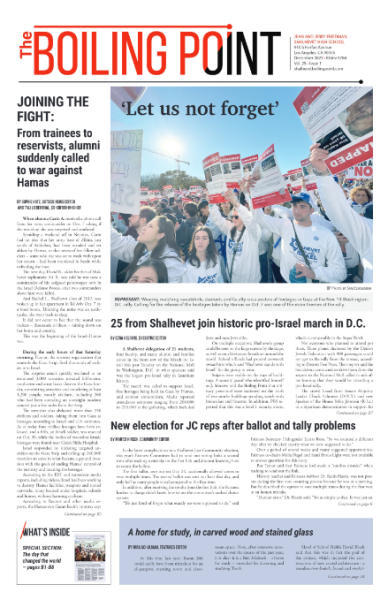How righteous was Noach, and does it matter?
November 7, 2016
For as long as I can remember, I’ve been hearing the same Dvar Torah on Parshat Noach. Everyone always talks about Rashi’s comments on נחַ אִישׁ צַדִּיק תָּמִים הָיָה בְּדֹרֹתָיו״“, “Noach was a perfect and righteous man in his generation.” Rashi gives two possible interpretations of this quote. The first is a “favorable” interpretation, proclaiming that if Noach could be righteous in such an awful generation, how much more righteous would he be in a great generation? The other side is a more negative interpretation, stating that while Noach was great in his generation, he would be nothing but average in a generation like Avraham’s.
These are the classic interpretations that are given for the word b’dorotav – in his generation — and we are always left wondering: which interpretation is correct? While that may seem like an unanswerable question, we may in fact discover a solution using a basic halachic principle.
In my ninth-grade Talmud class with Rabbi Stein, one of the very first gemaras we learned was Eruvin 13b. In this sugya, or section, there’s a machloket, or disagreement, between the classic rivals Beit Hillel and Beit Shammai – in this case, one so intense that Rashi asserts that it was as if there were two Torahs in the room.
Eventually, a heavenly voice comes down and says: “אלו ואלו דברי אלהים חיים הן והלכה כב״ה,” meaning that both answers are correct, but Hillel still wins. The Gemara goes on to explain that while Shammai’s points were sharper and voiced more eloquently, Hillel gave due respect to his opponent’s points before even uttering his own. In essence, the fact that Hillel was more respectful meant that he was considered more eligible.
If we take a closer look at Rashi’s comment on b’dorotav, we can see that he applies the same principle. When explaining the two positions on Noach’s righteousness, Rashi uses the raboteinu honorific when speaking about those with the positive view of Noach, while simply saying that there are “those” who hold the second, negative interpretation.
Ultimately, we see that Rashi’s main goal in this particular commentary is not to explore the very interesting hypothetical of what Noach’s level of righteousness might have been in another generation. Rather, he is teaching that we should all endeavor to remember in our interactions with those around us that being respectful comes before being right – or as Rashi himself puts it in his commentary on Yehoshua: derekh eretz kadmah latorah: good behavior.













